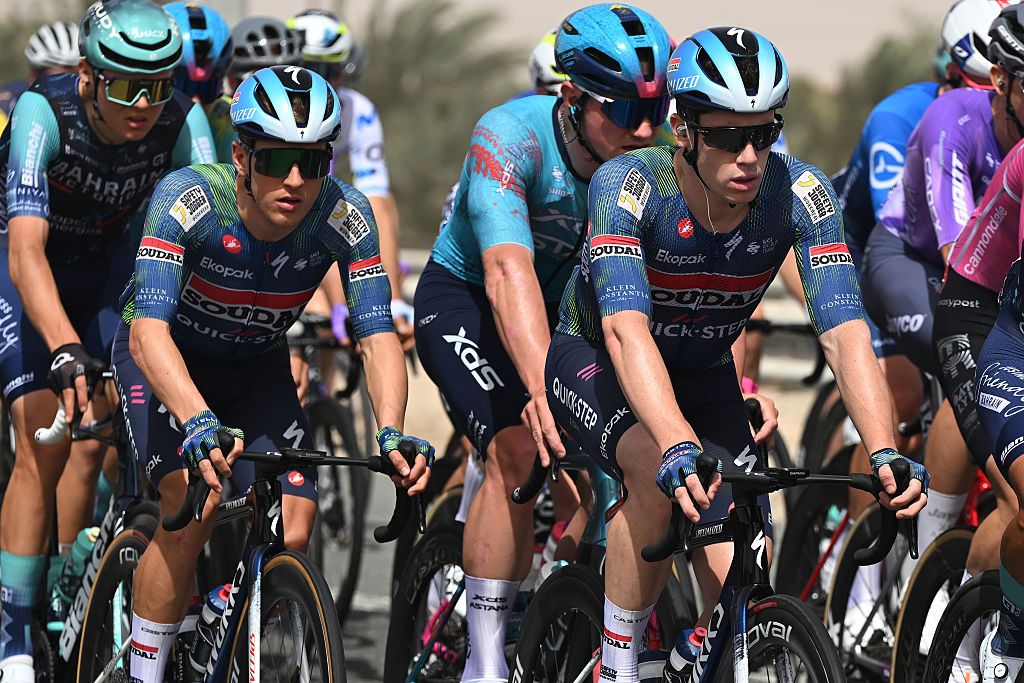The future of women's cycling: a Q&A interview with Brian Cookson
UCI president discusses his manifesto for women's cycling, and what has and hasn't worked
The latest race content, interviews, features, reviews and expert buying guides, direct to your inbox!
You are now subscribed
Your newsletter sign-up was successful
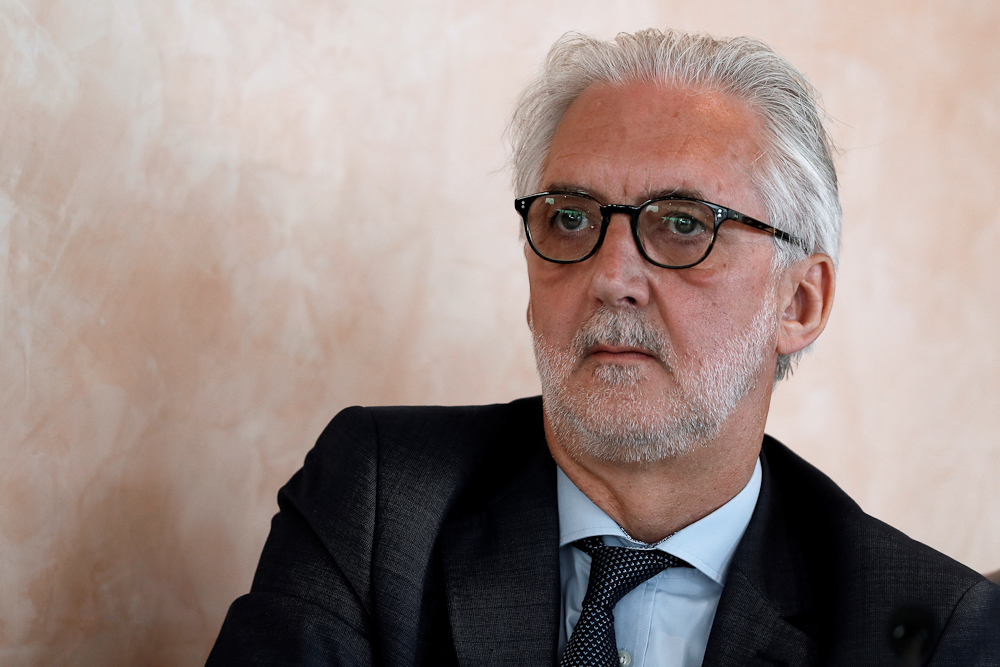
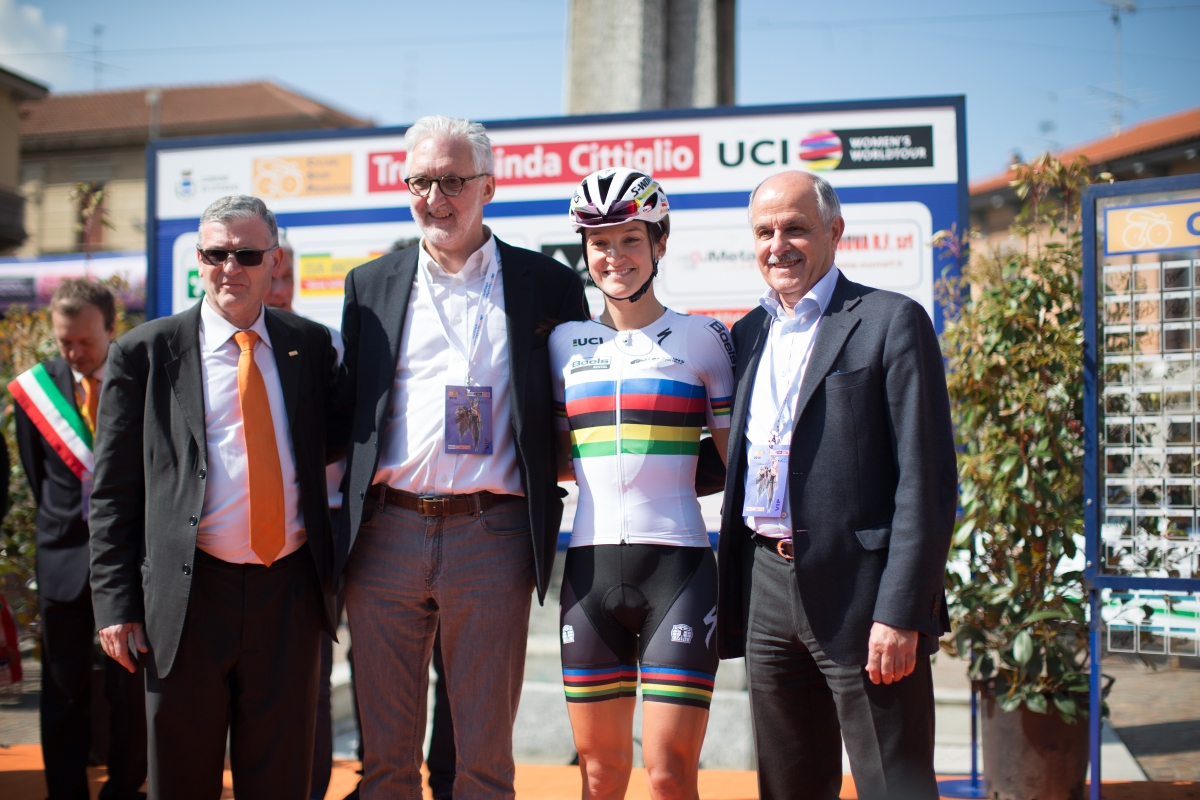
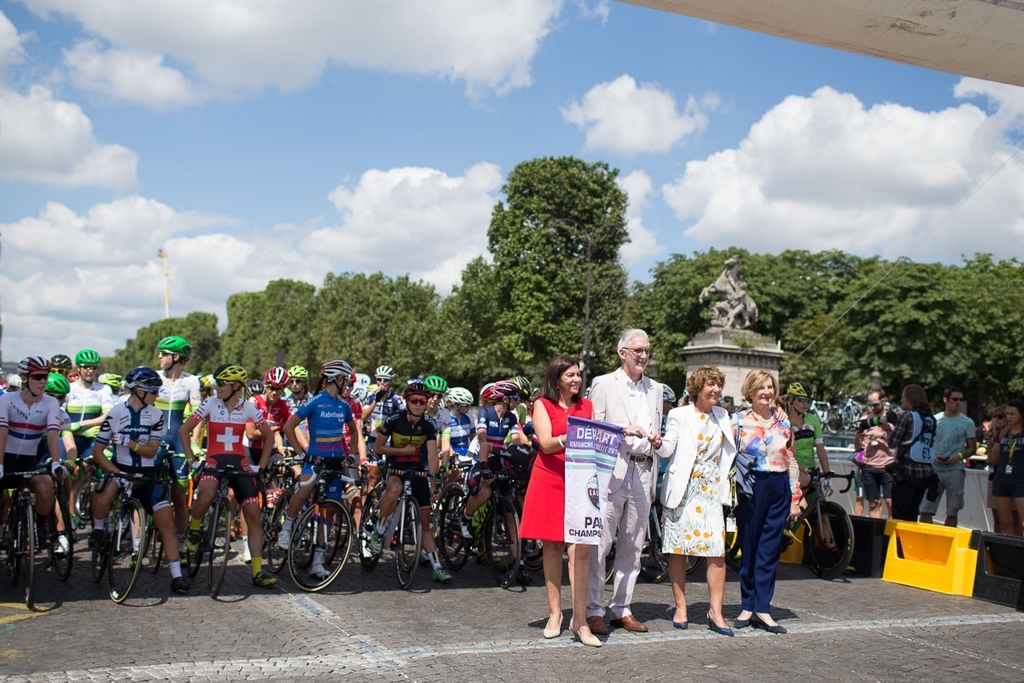
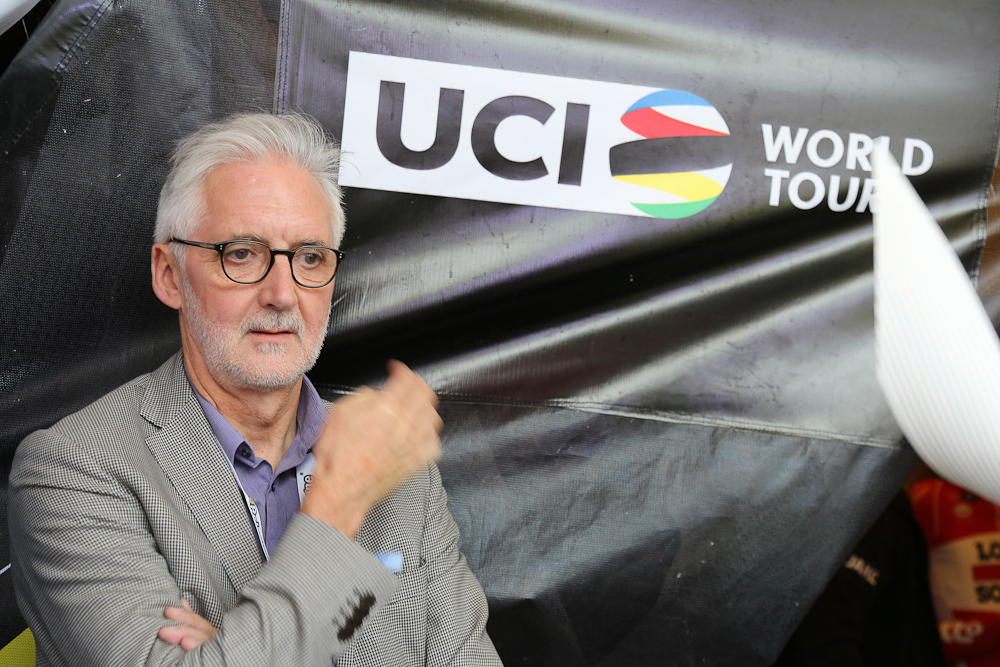
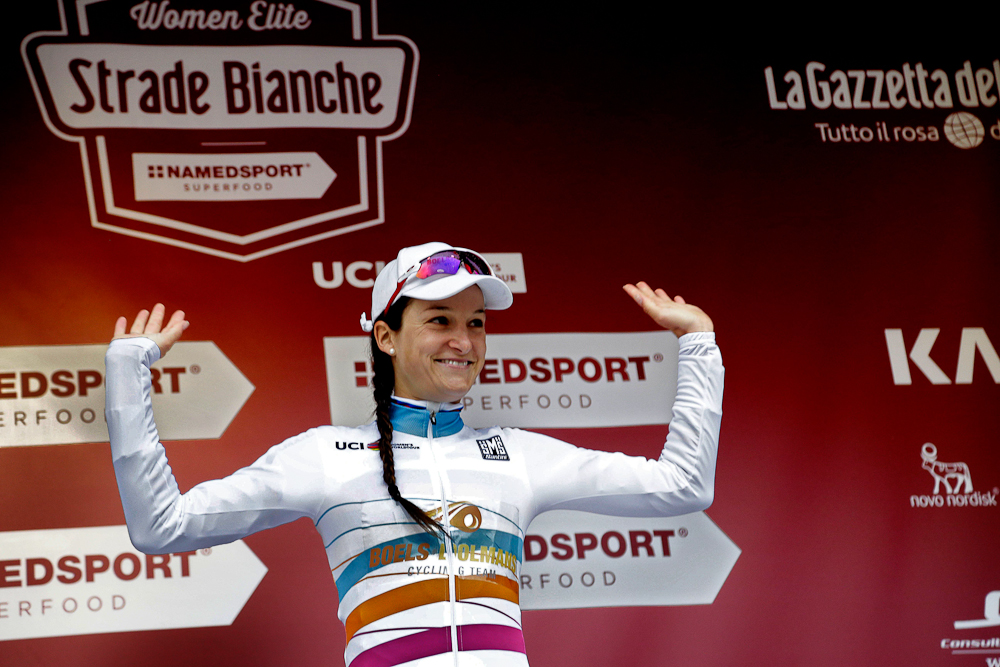
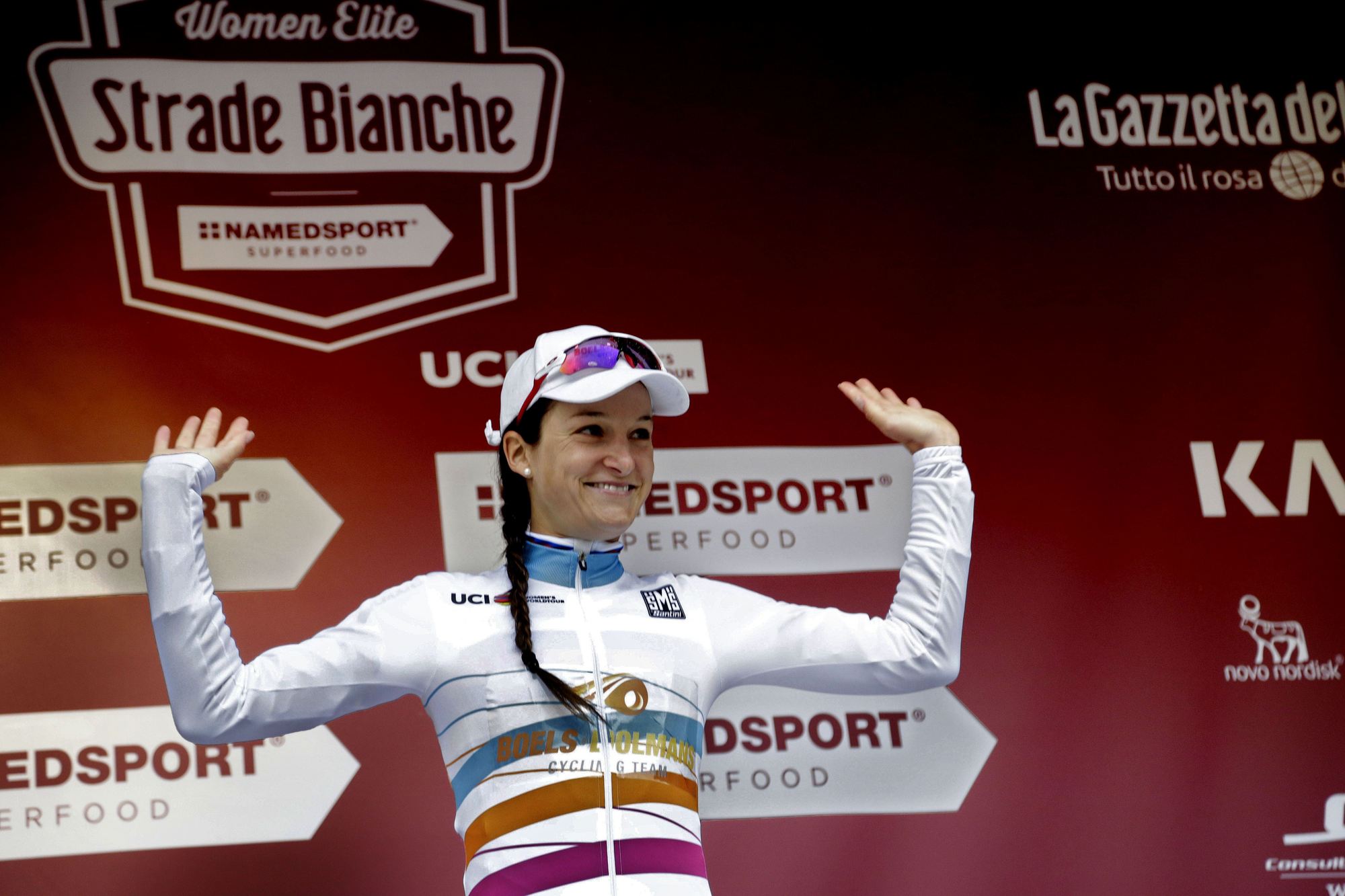
The UCI elections for the next president of the spots international governing body will take place during the World Championship in Bergen in September 2017, where current president Brian Cookson will be looking for a second term. Cookson beat the incumbent Pat McQuaid at the last elections, in Florence 2013, to step up and take his first term in office.
In his original manifesto, Cookson laid down his plans for women's cycling, such as a minimum wage, the Women's Commission, better television coverage, new races and ensuring that women were a part of all of the governing body's commissions. Cyclingnews spoke the UCI president about women's cycling in Paris, shortly after the finish of La Course, which was won by Wiggle-High5’s Chloe Hosking, to discuss his manifesto points and his plans for women's cycling if he is elected for a second term.
Cyclingnews: One of the big points on your manifesto was a minimum wage that is yet to happen, when will we see it?
Brian Cookson: I still remain committed to getting a minimum wage for women as soon as we can. What I was advised, by the women who became involved in the UCI both before and after my election, was that the women's scene wasn't strong enough for that. And that the net result would be, if we passed a rule that there had to be a minimum wage, we would lose a lot of teams. So, we adopted an alternative approach. That was to try and make the economy of women's cycling stronger first, which I think that we are in the process of doing. Then we can think about introducing a minimum wage. It's an important first step, to make the sport stronger first of all before bringing in that rule.
CN: How long do you think it will be before it can be implemented?
BC: I don't want to put a timescale on it. I want to be guided by the women who are running women's cycling very effectively. What I'm seeing now is that women's cycling is getting stronger every year. The women's WorldTour is an innovation for us this year. I think that it has had a really galvanising effect on the women's scene. We're seeing more events coming in and wanting to be part of it for next year. Already we're talking to people at Amstel Gold, who want to do a women's race.
We're seeing events putting on prizes that are equivalent to the men's, so I think that we're moving in the right direction. I don't think that it is a question of just passing a rule but making sure that the circumstances are in place so that sponsors will put sufficient money into the teams, that races will put on sufficient prizes and that the economy of women's cycling can grow to sustain a minimum wage.
The latest race content, interviews, features, reviews and expert buying guides, direct to your inbox!
CN: In your manifesto, you said that you wanted it in the first year. Is it a regret that you weren't able to get it to work?
BC: I think that I've already answered that, we were advised by the women we brought into the women's commission, the women that are running women's teams and who are organising events and some of the riders who said that it wasn't the right time to do it.
CN: You mentioned the Women's Commission, which was part of your manifesto, are you happy with how that has been working since its inception?
BC: I think under the leadership of Tracey Gaudry, who is the first ever female Vice President of the UCI, it has made great progress. We listen to the women's voices now much more effectively than the UCI ever did in the past. We have some great women involved in the UCI. As I said, we have at least one woman on all of the UCI's commissions, and they are not there as tokens, they are there because of their expertise and experience. We've got some great women contributing to running cycling now.
CN: One of the big implementations of the Women's Commission was the WorldTour. What changes has bringing that in made for women's cycling compared to the World Cup?
BC: First of all, it is a step forward, we're seeing more television coverage, the UCI has invested in some of that television coverage and we've also made it a requirement for organisers that they should achieve that. If they can't get live, then at least recorded highlights. There have been some hiccups along the way but I think that, by and large, good progress has been made and what we're seeing now is more organisers wanting to come into the WorldTour. Not just one-day races, not just events that are on the back of the men's events. That works in some circumstances but what we're seeing is women's events standing on their own two feet in their own right, and that's a good thing.
CN: In terms of TV coverage, there are some still some races, fairly big races such as the Giro d'Italia, that are very hard to watch for some fans.
BC: The reasons for that are well known, this is a historic event that has been going for years. There are some established relationships, which are on-going, in terms of sponsorship and media contracts but let's try and focus on the bright side. We've just seen La Course here, which was broadcast live around the world and there are some great examples of how that is working. We can't change the world overnight. I believe we're seeing a sea change in the attitude towards women's sport generally, in the media and in the public, and our job is to push that forward, and I think that is what we're doing. We can't solve all of those problems overnight; we can't ensure that there is live coverage of women's sport overnight. What we can do is push it in the right direction.
CN: The Women's WorldTour, compared to the World Cup, brought in some additional stage races, but they are still few and far between at the top level. Is that something that will change?
BC: As I've said before, the economy of professional sport, whether it's men's or women's and it is very related to the amount of interest there is for the public and thus from the media. If we grow women's cycling so that there is more interest from the public, there will be more interest from the media, and then there will be more interest in the sponsors, then there will be the possibility of having more and bigger and longer events. We can't change that overnight, what we can do is shift the paradigm, shift the basis of how all of that works and make sure that there is incremental and sustainable growth in women's cycling. I think that's what we're doing; I think that we've been successful in that but Rome wasn't built in a day, and we're getting there bit by bit.
A new manifesto for women's cycling
CN: With the elections coming up next year, what would be your manifesto for women's cycling?
BC: I want to keep developing the Women's WorldTour, I want to see women competing on an equitable basis with the right sort of prizes in all branches of cycling, not just road racing. We at the UCI have done our bit, we've equalised prize money at the World Championships across disciplines and so on. I want to see other organisers trying to do the same thing.
Whether we ever see a three-week women's Tour de France, I don't know, would that be the right thing for women's cycling at this stage, probably not. I think shorter stage races and more events that are attuned to the state of development of women's cycling at this moment are what we should be aiming for. That's the sort of sustainable incremental growth that I think that we're seeing.
CN: What sort of development will we see from the WorldTour next year?
BC: Well, we're looking at the applications for next year's events already. I think that we're going to see some more, bigger events. I think that we're going to see some more stage races coming into the programme, but I'm anxious that we make that growth sustainable and incremental. Sorry I keep saying that, but those are important principles. You can't just have a big bang solution and change everything and assume that everything is going to work.
CN: Will we soon see a tiered system similar to the men's?
BC: Ultimately I think that we will see that. Soon is a relative term, let's see how we go. I want to make sure that we have a successful women's WorldTour first, and then we can start building at the same time, working with our national federations and working with our organisers to build and develop the tiers that will support that.
CN: In the background of that, will there be a more rigid set of regulations for the teams?
BC: Absolutely. Ultimately, we'll have the same specifications in what we call the cahier de charges, which sets out how a team should be run, the ethical processes, the financial processes and all the rest of it. That is the situation we want to help women's cycling, but it is important that we allow it to grow, we don't stifle the green shoots that we've seen in women's cycling and work with the women who are making that happen.
Born in Ireland to a cycling family and later moved to the Isle of Man, so there was no surprise when I got into the sport. Studied sports journalism at university before going on to do a Masters in sports broadcast. After university I spent three months interning at Eurosport, where I covered the Tour de France. In 2012 I started at Procycling Magazine, before becoming the deputy editor of Procycling Week. I then joined Cyclingnews, in December 2013.
